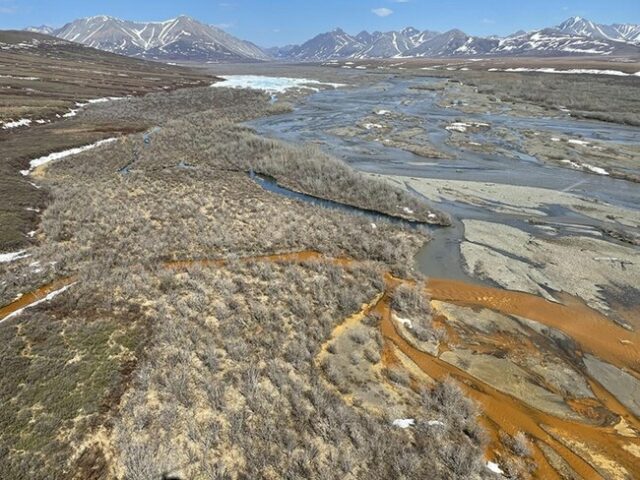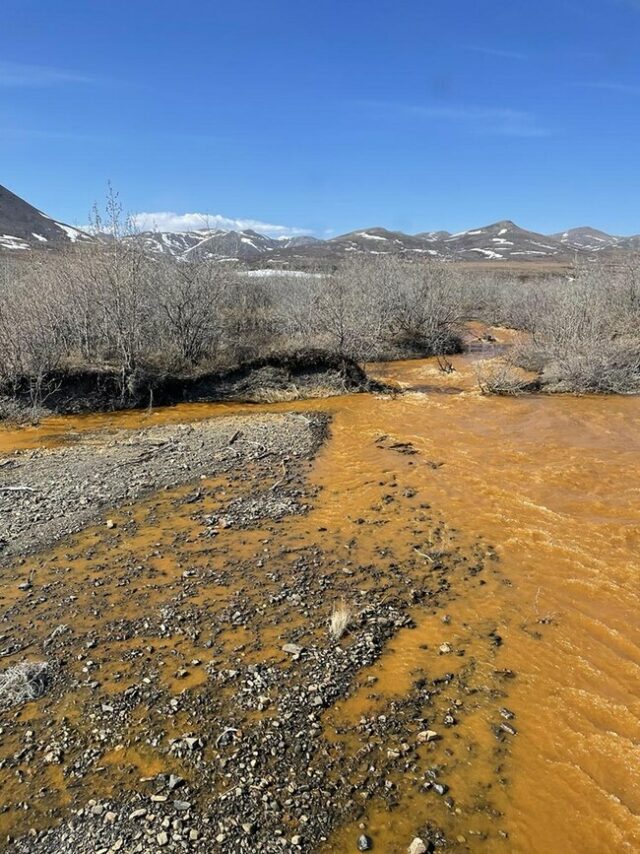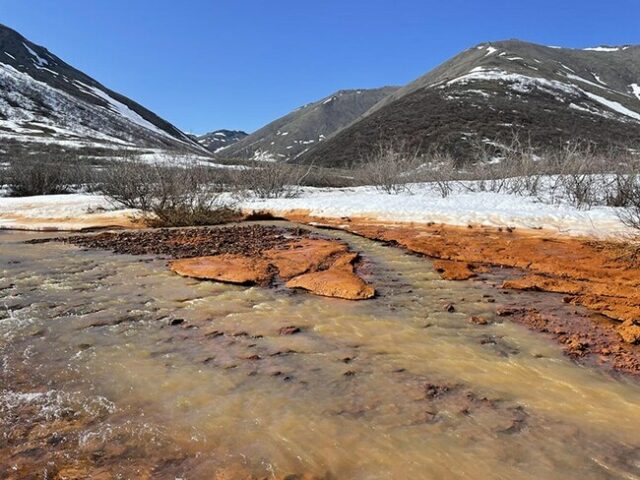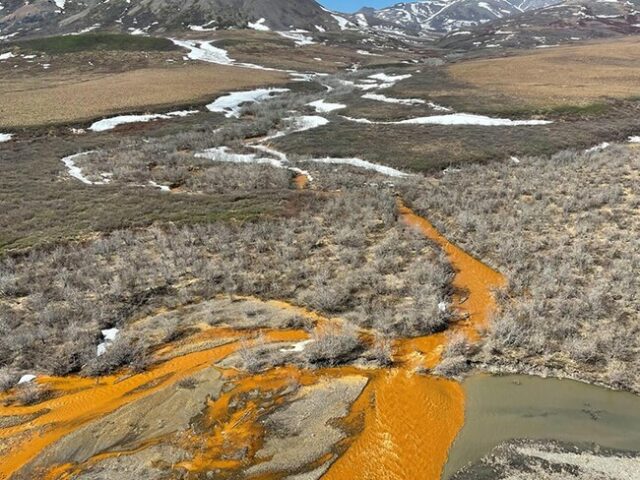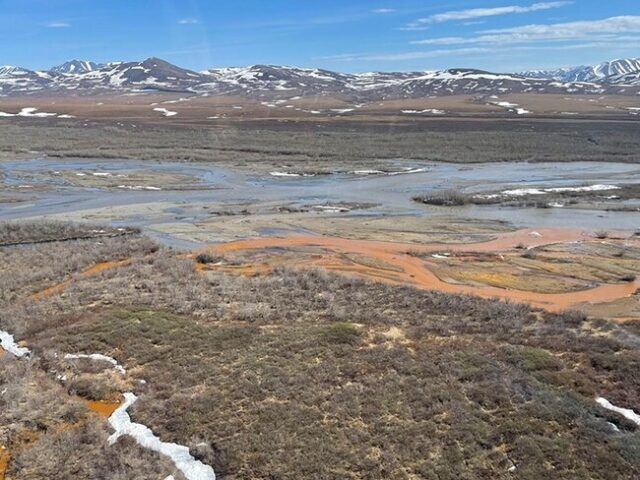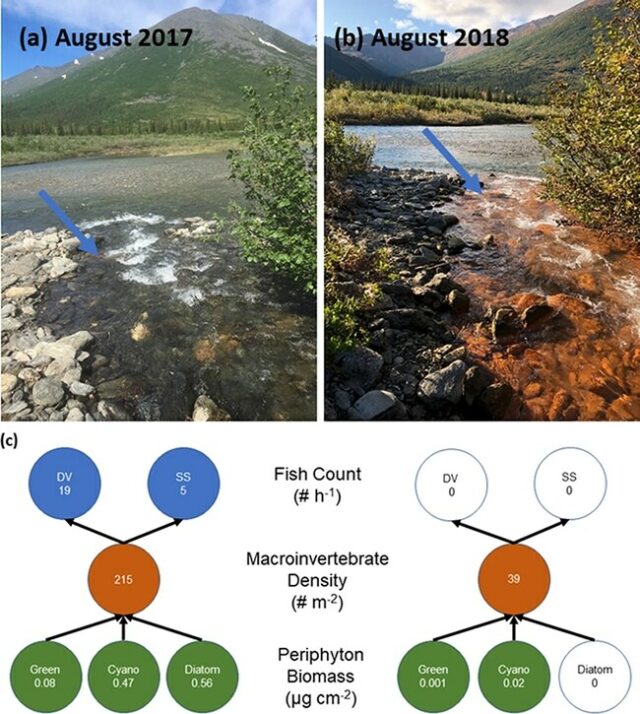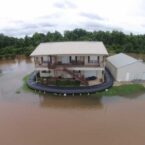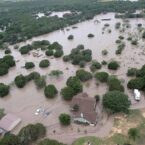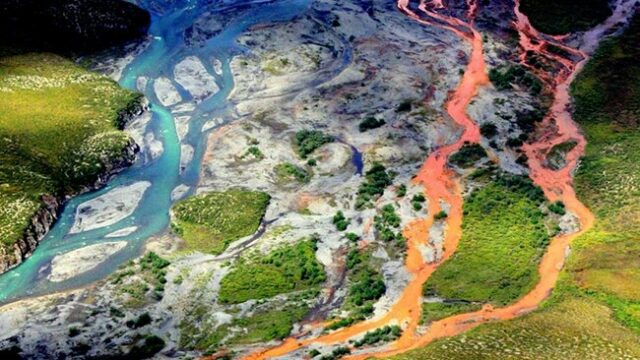
Alaska is renowned for its pristine wilderness, characterized by majestic mountains, dense forests, and an extensive network of rivers. However, this natural beauty has recently been marred by an alarming phenomenon: the transformation of some rivers into a murky, rusty orange hue. This drastic change was first observed by scientist Jon O’Donnell during a visit to a remote river in 2018, a stark contrast to the clear waters he had seen the previous year. This anomaly prompted an in-depth investigation, culminating in findings published in Nature Communications: Earth and Environment. The study reveals that climate change is the primary driver behind this unsettling transformation. As permafrost warms, it releases metals and acids into the rivers, contaminating the water. Satellite imagery has shown that these changes began as early as 2008, indicating a long-term trend visible even from space. O’Donnell and his team, including researchers from the National Park Service, U.S. Geological Survey, and University of California, Davis, found more and more orange rivers during their aerial surveys, highlighting the widespread nature of this issue.
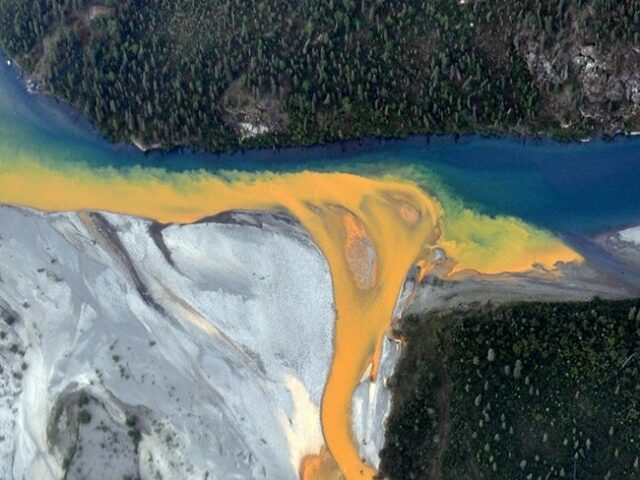
Water testing revealed alarming levels of iron, zinc, nickel, copper, and cadmium, with pH levels dropping to as low as 2.3 from the normal 8. PhD student Taylor Evinger noted that the dominant metal causing the color change is iron, which oxidizes and gives the tributaries their rust color. These tributaries feed into larger rivers, creating a stark contrast between the orange and the still-clear waters. O’Donnell warned of the broader implications of this phenomenon. As the climate continues to warm, more permafrost is expected to thaw, potentially increasing the number of orange, polluted streams. This poses significant threats to water quality, drinking water supplies, and wildlife, particularly salmon populations in Alaska. Additionally, melting permafrost could release other ancient materials, such as plant DNA and frozen viruses, into the environment. The situation underscores the urgency for scientists to understand and mitigate the impacts of climate change on ecosystems and human life.
